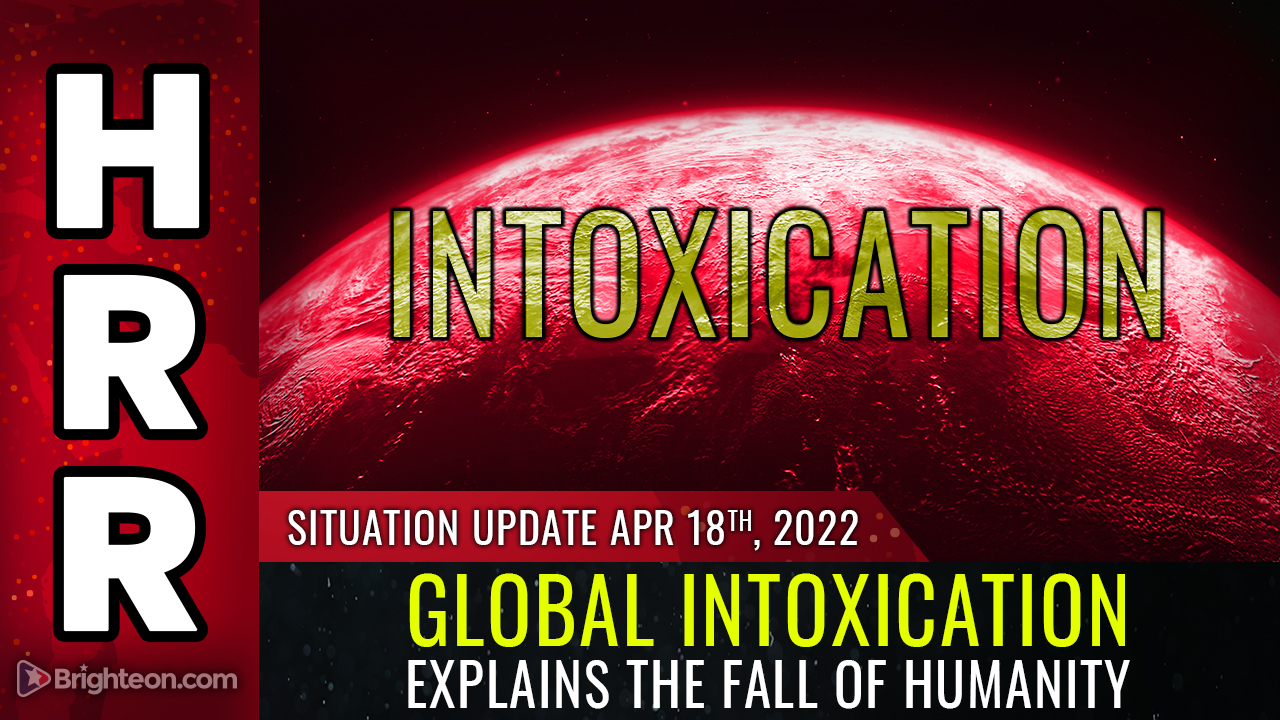8 Signs of sugar addiction… and tips to control your sweet tooth
03/14/2019 / By Michelle Simmons

Humans are naturally wired to crave sugar because it plays an important role in survival. During ancient times, sugar was mostly available in the summertime. People during those times would indulge in it to store excess calories in the form of body fat to survive through the cold winter seasons. Today, however, sugar is readily available any time, which can lead to addiction. Here are eight signs of sugar addiction and how to fix them:
- You want to eat or snack throughout the day: You may be addicted to sugar if you feel the need to snack all the time, even when you are not actually hungry. If this is the case, the solution is to focus on eating a combination of fats, proteins, and carbohydrates at every meal or snack. Don’t eat carbohydrate-rich, sugary foods alone.
- You eat plenty of fruits or drink a lot of juice: You may think that eating lots of fruits or drinking fruit juices is healthy, but remember, many fruits are also high in sugar. If you often crave sweet fruits, you may be addicted to sugar. However, this does not mean that you should stop consuming fruits altogether. You just have to eat fruits that contain more nutrients but less sugar, such as berries. For juices, it’s best to drink fresh green juice that mainly comes from vegetables.
- You crave for coffee and alcoholic drinks: Coffee and alcoholic drinks often contain sweeteners and mixers that greatly contribute to sugar intake. Moreover, many people who quit drinking coffee or alcohol tend to crave other sugary foods or drinks. To fix this, don’t add sweeteners to your coffee. If you’re drinking alcohol, drink in moderation and avoid dark-colored liquors, mixers, and beer.
- You’re always stressed: Being chronically stressed increases your levels of cortisol, which promotes hunger and sugar cravings. Eating sugar can also increase cortisol levels. Elevated cortisol levels can lead to adrenal fatigue, which can further trigger sugar cravings and addiction. You can relieve stress by practicing breathing through your nose and belly breathing techniques. Additionally, avoid stress eating and take a walk instead.
- You crave sweets during or after meals: You are most likely addicted to sugar if you always think of eating something sweet during or right after a meal. Craving sugar during or after meals can also be a symptom of adrenal fatigue and small intestinal bacterial overgrowth (SIBO). Get tested for adrenal fatigue or SIBO to address this problem.
- When you’re hungry, you want to eat immediately: If this sounds like you, you could be suffering from hypoglycemia, which occurs when blood sugar declines to below-normal levels. This condition makes you crave sugary foods. To prevent this from happening, do not eat carbs in isolation. Instead, eat protein and fat at every meal and snack.
- You crave carbs early in the morning or late at night: Eating a breakfast high in carbs can put you in the vicious cycle of spikes and drops in blood sugar levels throughout the day. Carbohydrates are metabolized as sugar once they reach the bloodstream. They spike blood sugar levels, which then drops shortly after. This “blood sugar roller coaster” can make you hungry more often and can intensify your sugar cravings. To solve this, eat a protein-rich breakfast containing healthy fats and non-starchy vegetables instead.
- Your sugar craving intensifies when you try to give it up: You may have tried to give up sugar, and when you did, your sugar cravings just became more intense and frequent. If this is the case, it is best to follow a Paleo diet. This type of diet helps you to naturally balance sugar levels by providing a healthy macronutrient ratio and focusing on low-glycemic carbs. This helps maintain steady blood sugar control throughout the day.
Sugar addiction harms your health in many ways. It can increase your risk of many health conditions, such as obesity, heart disease, diabetes, cancer, fatty liver, and depression. It can also be detrimental to your skin, kidneys, and teeth. (Related: Sugar addiction is REAL: What you need to know about this scary addictive response.)
Sources include:
Submit a correction >>
Tagged Under:
addiction, artificial sweeteners, blood sugar, disease causes, food addictions, food science, refined sugar, sugar, sugar addiction, sweet, sweet tooth, sweeteners, toxic food, toxic ingredients
This article may contain statements that reflect the opinion of the author
RECENT NEWS & ARTICLES
StopEatingPoison.com is a fact-based public education website published by Stop Eating Poison Features, LLC.
All content copyright © 2018 by Stop Eating Poison Features, LLC.
Contact Us with Tips or Corrections
All trademarks, registered trademarks and servicemarks mentioned on this site are the property of their respective owners.





















